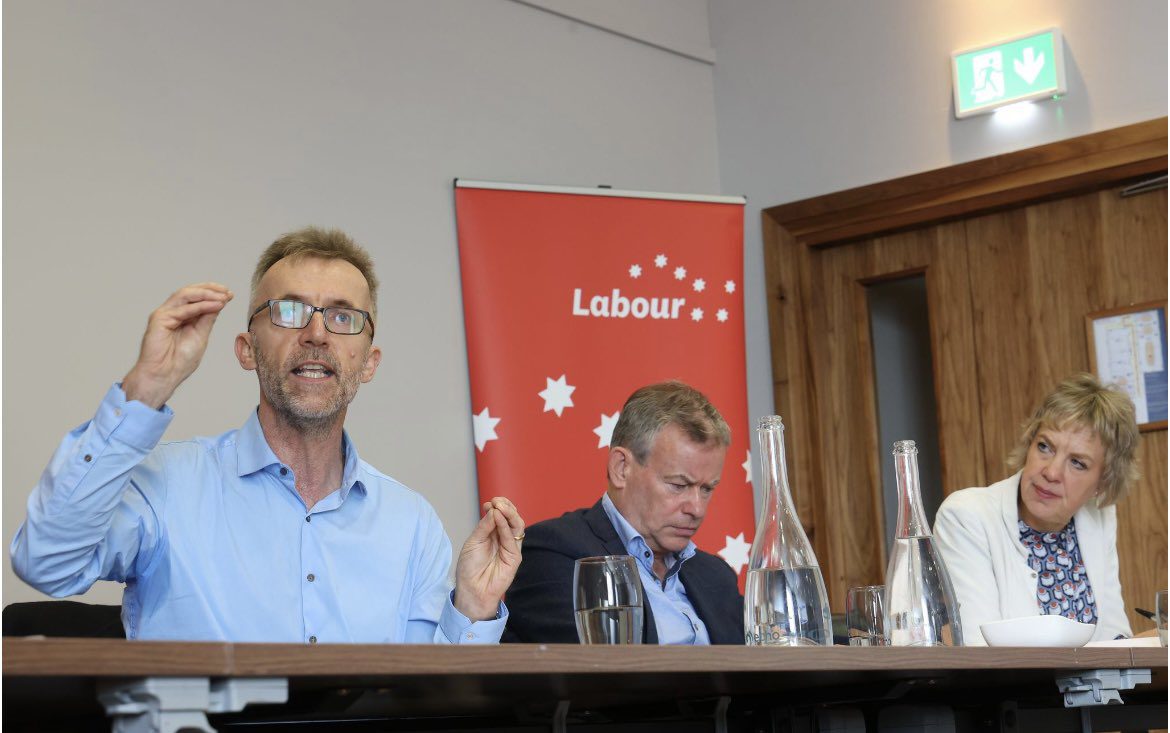The topic for the panel discussion at the Labour Party annual think-in was: The Climate Challenge: Energy Security, Fuel Poverty and ‘Jobs for Good’.
Perhaps the political challenge of climate policy is usefully summarised by this observation from Machiavelli on the perils of leading change:
It should be borne in mind that there is nothing more difficult to arrange, more doubtful of success, and more dangerous to carry through than initiating changes. The innovator makes enemies of all those who prospered under the old order, and only lukewarm support is forthcoming from those who would prosper under the new. Their support is lukewarm … partly because men are generally incredulous, never really trusting new things unless they have tested them by experience.
From "The Prince". Book by Niccolo Machiavelli, 1532
The Labour Party is a well-intentioned institution. It wants to do the right thing for society and for the country – but how do you do that and still get elected? That was on the minds of the delegates in attendance at the Talbot Hotel in Co. Wexford.
As Hannah Daly of University College Cork observed: “The challenge is no longer mainly technical or even economic, it is organisational and political – because the transformation requires upsetting incumbents”. And as Machiavelli observed, while the incumbents are in the minority – their focus is narrow, they have something to defend, they are well-resourced and organised.
In contrast, the multitudes who stand to gain from a transition to a low-carbon future are fragmented, disorganised, poorly resourced, hampered by uncertainty and encumbered with a natural status quo bias that dampens their collective urgency.
The more interesting discussion points at the Labour think-in included:
- It is said that “it is difficult to get a man to understand something when his salary depends on not understanding it”. The market cannot solve problems where individual interests do not align with collective interests – so new approaches to governance, national and global, are needed.
- Businesses are much more likely to pay the premium for climate friendly materials if the law requires it, their customers demand it and their competitors are doing it.
- 2030 Goals are just milestones to 2050 when we must reach zero. And the things we might do to achieve reductions by 2030 might be very different to the things we’d do to get to zero by 2050. We need to be careful of “Trojan Solutions” – which exacerbate the problem that must be solved.
- The state sees the world through he eyes of the law…but politicians see it through the eyes of the media. How do we enable politicians to do the right thing by the state rather than what plays well to the media and public mood?
The dilemma that surfaced through the discussion was the challenge of dealing with the fierce urgency of the present moment, while also acknowledging that the systemic thinking and deep collaboration we need, will not emerge from short-term thinking. Policymakers and leaders must make hard choices, but they need to explain them clearly and transparently with strong values and principles – like helping those who are displaced to transition to new work.
Did we find any easy answers? No! But it was an illuminating discussion, and perhaps the leverage for change is in asking better questions.
One area the think-in did not address is the potential impact of the cascade of measures arising from the EU Green Deal. It is not clear that policymakers are aware of the Corporate Sustainability Reporting Directive, the EU taxonomy and the Sustainable Finance Disclosures Regulation and how these measures might change things – in the near term – through radical transparency.
If we really see and feel what is being done to nature – like we can see and feel the loss of money – we are unlikely to unsee it!

Share this on...